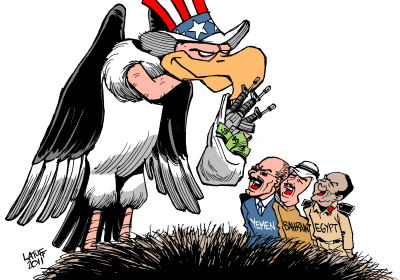
-
 Since the terrorist attacks in Paris on November 13, the world's leaders and media have predictably reminding the world that the attacks' perpetrator – ISIS – has declared war to the death against humanity. ISIS would not deny this. Indeed, making this point was the reason it carried out the Paris attacks, which killed 129 people.
Since the terrorist attacks in Paris on November 13, the world's leaders and media have predictably reminding the world that the attacks' perpetrator – ISIS – has declared war to the death against humanity. ISIS would not deny this. Indeed, making this point was the reason it carried out the Paris attacks, which killed 129 people. -
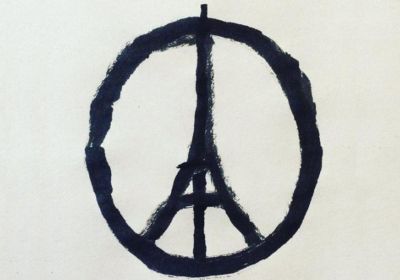 As the initial horror and outrage of the attacks in Paris on November 13 subside, the impacts they are already having on French and European society are becoming clearer. A state of emergency has been declared by the French government and will persist for up to three months. French officials announced on November 17 that France would see an extra 115,000 police officers, gendarmes and soldiers deployed across the country. In this context, rational debate is being restricted and progressive movements are on the defensive. Refugees
As the initial horror and outrage of the attacks in Paris on November 13 subside, the impacts they are already having on French and European society are becoming clearer. A state of emergency has been declared by the French government and will persist for up to three months. French officials announced on November 17 that France would see an extra 115,000 police officers, gendarmes and soldiers deployed across the country. In this context, rational debate is being restricted and progressive movements are on the defensive. Refugees -

The Socialist Alliance and its youth wing, Resistance, expresses our solidarity with the people of Paris and Beirut who were targeted in back-to-back acts of terror by ISIS forces in the past few days.
-
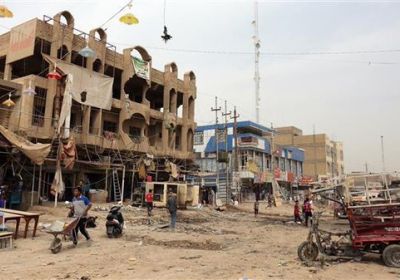 As news arrived yesterday of terror attacks in Paris that ultimately left more than 120 people dead, US President Barack Obama characterized the situation as “heartbreaking” and an assault “on all of humanity.” But his presidential sympathy was conspicuously absent the previous day when terror attacks in Beirut left more than 40 dead. Predictably, Western media and social media were much less vocal about the slaughter in Lebanon.
As news arrived yesterday of terror attacks in Paris that ultimately left more than 120 people dead, US President Barack Obama characterized the situation as “heartbreaking” and an assault “on all of humanity.” But his presidential sympathy was conspicuously absent the previous day when terror attacks in Beirut left more than 40 dead. Predictably, Western media and social media were much less vocal about the slaughter in Lebanon. -
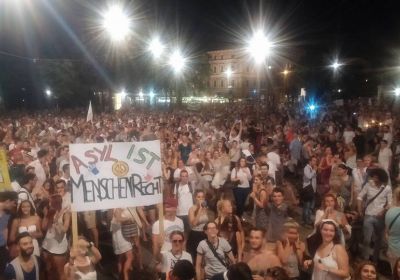
In less than a fortnight a series of tragedies took place on the borders of Europe, spurring a continent-wide debate over refugee policy.
-

“Are we animals? Why? Why?” Those were the words of one Syrian refugee to BBC's Channel 4 recently after Macedonian police attacked desperate families seeking entry into the country along the border with Greece.
-
 In the aftermath of the harsh deal for brutal austerity and mass privatisation imposed on Greece in the early hours of July 13, both Berlin and Paris are floating alternative “solutions” to the euro problem. Germany, on the one hand, wants greater fiscal integration, whereas France is calling for the creation of a eurozone government as well as a dedicated finance minister. The mainstream press is talking up the divisions between the two nations as fundamentally different perspectives on the euro — or even differences in political “culture”.
In the aftermath of the harsh deal for brutal austerity and mass privatisation imposed on Greece in the early hours of July 13, both Berlin and Paris are floating alternative “solutions” to the euro problem. Germany, on the one hand, wants greater fiscal integration, whereas France is calling for the creation of a eurozone government as well as a dedicated finance minister. The mainstream press is talking up the divisions between the two nations as fundamentally different perspectives on the euro — or even differences in political “culture”. -
 Samba
Co-written & directed by Olivier Nakache & Eric Toledano
In cinemas now
Nobody could say that French film makers Olivier Nakache and Eric Toledano — and their actor of choice, Omar Sy — shy away from heavy subjects.
In their 2012 international hit The Intouchables, they dived straight into questions of disability, racism and class. Now in Samba they have tackled the question of illegal migrants struggling to survive without papers in contemporary France.
Samba
Co-written & directed by Olivier Nakache & Eric Toledano
In cinemas now
Nobody could say that French film makers Olivier Nakache and Eric Toledano — and their actor of choice, Omar Sy — shy away from heavy subjects.
In their 2012 international hit The Intouchables, they dived straight into questions of disability, racism and class. Now in Samba they have tackled the question of illegal migrants struggling to survive without papers in contemporary France.
-
 The French government has joined the Australian government in ignoring its own reports that say a transition to 100% renewable energy is feasible and involves little extra cost.
Mediapart obtained a report from the French government’s environment and energy agency body ADEME that showed shifting to 100% renewable energy by 2050 is materially and technologically feasible. The report found it would cost relatively little more than the existing electricity supply, which is 75% nuclear.
The French government has joined the Australian government in ignoring its own reports that say a transition to 100% renewable energy is feasible and involves little extra cost.
Mediapart obtained a report from the French government’s environment and energy agency body ADEME that showed shifting to 100% renewable energy by 2050 is materially and technologically feasible. The report found it would cost relatively little more than the existing electricity supply, which is 75% nuclear.
-
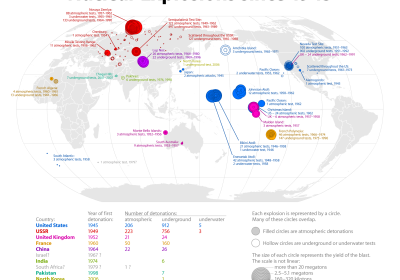
In April last year, the government of the Marshall Islands announced it would be taking nine nations — China, France, India, Israel, North Korea, Pakistan, Russia, Britain and the US — to the International Court of Justice (ICJ) in The Hague over their possession of nuclear weapons.
-
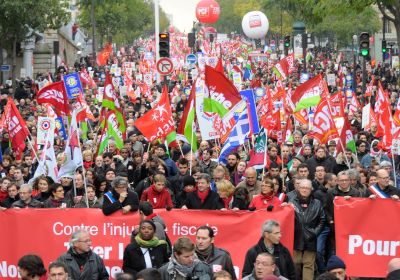 French politics further confirmed its rightward trajectory after the second round of departmental elections on March 29. There are 101 departments and 4108 councillor positions across the country. Departments are in charge of local roads, school buildings and buses, welfare allowances and various other local issues. But the elections also represent a barometer of the political situation in the country. The governing nominally centre-left Socialist Party (PS) suffered a humiliating defeat against a right-wing united front headed by the centre-right Union for a Popular Movement (UMP).
French politics further confirmed its rightward trajectory after the second round of departmental elections on March 29. There are 101 departments and 4108 councillor positions across the country. Departments are in charge of local roads, school buildings and buses, welfare allowances and various other local issues. But the elections also represent a barometer of the political situation in the country. The governing nominally centre-left Socialist Party (PS) suffered a humiliating defeat against a right-wing united front headed by the centre-right Union for a Popular Movement (UMP). -
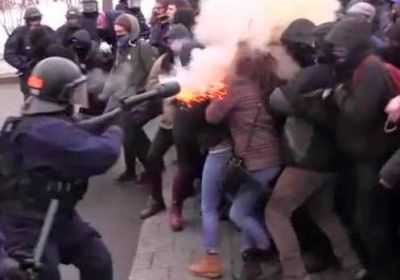 Spain: Education sector strikes against privatisation Professors and students in more than 40 Spanish cities went on strike on March 24 against the government’s education reform aimed at privatising the public sector. According to the unions who organised the strike, there was an 85% participation rate. High schools reached 90% participation around the country, according to a statement by Workers Commissions, FETE-UGT, the Independent Central of State Officials and Students of Spain in Movement.
Spain: Education sector strikes against privatisation Professors and students in more than 40 Spanish cities went on strike on March 24 against the government’s education reform aimed at privatising the public sector. According to the unions who organised the strike, there was an 85% participation rate. High schools reached 90% participation around the country, according to a statement by Workers Commissions, FETE-UGT, the Independent Central of State Officials and Students of Spain in Movement.